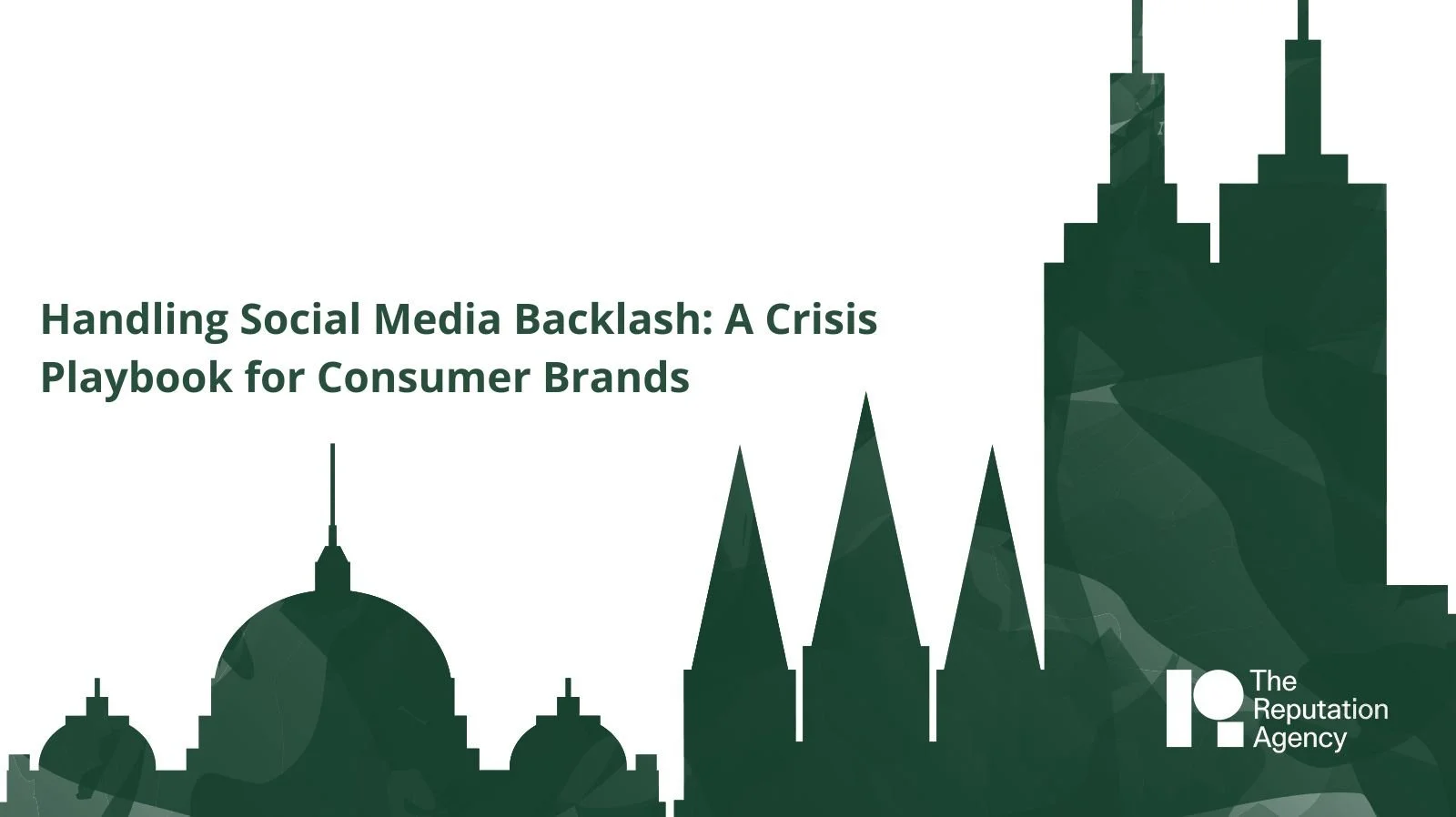Handling Social Media Backlash: A Crisis Playbook for Consumer Brands
Why Social Media Backlash Can Hurt Your Brand
Social media is a double-edged sword for consumer brands. While it offers unparalleled opportunities for engagement and brand building, it also opens the door to swift and widespread backlash. A single poorly received post, a customer complaint, or a misstep in communication can escalate into a full-blown crisis. Handling social media backlash effectively is key to preserving your brand’s reputation and maintaining consumer trust.
Understanding the Impact of Social Media Backlash
The Speed and Reach of Social Media
One of the main reasons social media backlash can be so damaging is its speed and reach. With millions of people sharing posts in real-time, a negative sentiment can spread like wildfire. A tweet or Facebook post can quickly go viral, reaching thousands or even millions of people within minutes. This rapid amplification of negative opinions can significantly harm a brand’s reputation if not handled promptly.
Consumer Expectations for Accountability
Consumers today expect brands to be transparent, accountable, and responsive. When a brand fails to address an issue or responds poorly to criticism, it can erode trust and customer loyalty. Social media backlash is often a reflection of these unmet expectations, and brands must be prepared to manage it with a clear and thoughtful strategy.
Step-by-Step Crisis Playbook for Handling Social Media Backlash
1. Acknowledge the Issue Immediately
The first step in managing social media backlash is acknowledging the issue as soon as it arises. Ignoring the problem or delaying a response can escalate the situation and lead to more negative press. Responding within a short time frame demonstrates that you are aware of the problem and are committed to resolving it.
Example Response: "We hear your concerns and are currently reviewing the situation. We take this very seriously and will update you shortly."
2. Stay Calm and Avoid Defensive Language
When responding to backlash, it’s important to remain calm and professional. Avoid becoming defensive or attacking those who are criticizing your brand. Instead, focus on listening, empathising, and offering solutions. Remember, social media is a public forum, and every response can be seen by a large audience.
3. Apologise Sincerely and Take Responsibility
If the backlash is due to a mistake or miscommunication, issue a sincere apology. Avoid making excuses or deflecting blame. A genuine apology shows that your brand is willing to take responsibility for its actions and values customer feedback.
Example Response: "We sincerely apologise for any confusion caused by our recent post. This does not align with our values, and we are taking steps to ensure this does not happen again."
4. Provide a Clear Plan of Action
Once you’ve acknowledged the issue and apologised, provide a clear plan of action that outlines how you intend to address the problem. This could involve product recalls, policy changes, staff training, or any other actions that will demonstrate your commitment to making things right.
Example Response: "We are implementing a new policy to ensure this issue does not occur in the future, and we are committed to keeping you updated every step of the way."
5. Monitor and Engage Regularly
Once the initial response has been made, it’s essential to monitor the situation and engage with your audience regularly. Respond to further questions or comments in a timely manner and continue to update followers on any progress made in resolving the issue.
Use tools like social listening platforms to monitor mentions of your brand across social media and respond as necessary.
Keep the conversation going until the situation is resolved and consumers are satisfied.
Did You Know?
According to a study by Sprout Social, 80% of consumers expect brands to respond to social media inquiries within 24 hours. Failing to do so can lead to a loss of trust and credibility.
Turning Backlash into an Opportunity
While social media backlash can be damaging, it also provides an opportunity for brands to demonstrate their commitment to transparency, customer satisfaction, and social responsibility. By responding quickly and professionally, you can not only resolve the issue but also strengthen your relationship with consumers, turning a negative situation into a positive one.
Need Help Handling Social Media Crises?
If your brand is facing a crisis on social media, we can help. At The Reputation Agency, we specialise in crisis management and corporate communications strategies to help brands navigate difficult situations. Learn how our crisis management services can help your brand handle social media backlash and protect your reputation.
FAQs
1. How quickly should a brand respond to social media backlash?
Brands should respond as quickly as possible, ideally within a few hours of the issue arising. This demonstrates that the brand is aware of the problem and is taking it seriously.
2. What’s the best way to apologise on social media?
An effective apology should be sincere, take responsibility, and include a clear plan of action. Avoid making excuses or blaming others, and focus on offering a genuine solution to the issue.
3. Should brands delete negative comments on social media?
It’s generally not recommended to delete negative comments unless they contain offensive or inappropriate content. Instead, respond professionally to address the concern and show transparency.
4. How can a brand prevent social media backlash?
To prevent social media backlash, brands should ensure clear and consistent communication, monitor social media channels for potential issues, and be proactive in addressing customer concerns before they escalate.
5. Can social media backlash be an opportunity?
Yes, social media backlash can be an opportunity for brands to demonstrate their commitment to customer satisfaction and transparency. Handling backlash professionally can enhance trust and loyalty among consumers.

